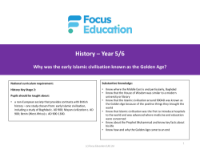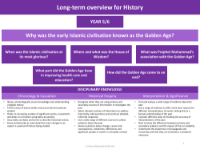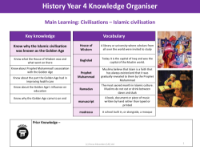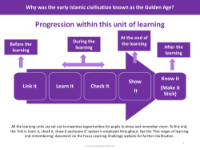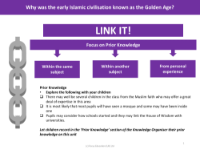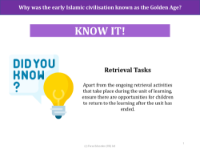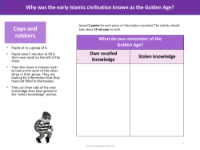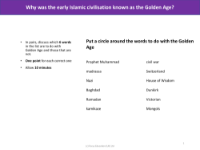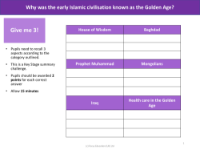Check it! - Islamic Civilisation - Year 5
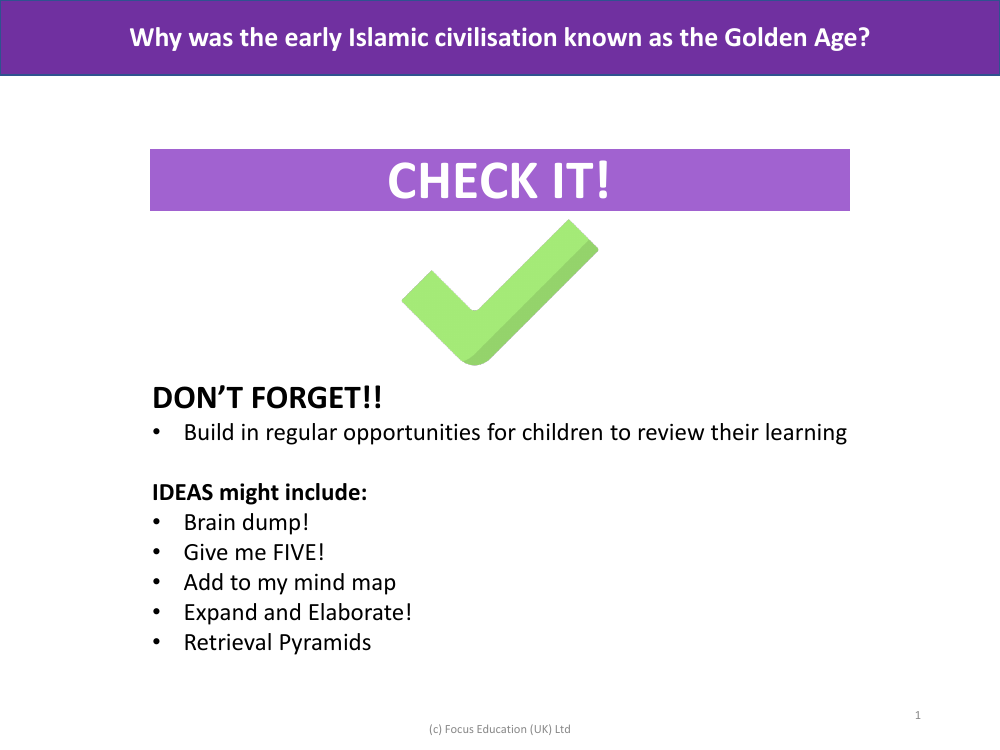
History Resource Description
The early Islamic civilisation is often referred to as the Golden Age because it was a period marked by significant advancements in various fields such as science, mathematics, medicine, and art. This era is celebrated for its substantial contributions to knowledge and culture, which had a lasting impact on the world. To ensure that Year 5 students have a solid understanding of this important historical period, educators are encouraged to incorporate regular reviews of the material covered. This can be achieved through engaging activities such as "brain dumps" where children spill out all they know, "Give me FIVE" exercises that prompt them to recall five facts, adding to mind maps to visualise connections, or using "Retrieval Pyramids" to categorise information based on difficulty or relevance.
These review techniques not only help reinforce learning but also make the educational process more interactive and enjoyable. For instance, students might be asked to list five facts about the Golden Age or the Prophet Muhammad, which helps them to consolidate their knowledge in a structured way. They could also be challenged to expand and elaborate on why the Golden Age was significant for Islam or to speculate on reasons why it eventually came to an end. True or False questions, identifying modern cities associated with the Golden Age, and discussing the faith linked to this era are additional ways to check understanding. Moreover, comparing the Golden Age to Europe's Dark Ages can offer context and help students appreciate the civilisation's historical importance. These strategies aim to foster a deeper comprehension of why the early Islamic civilisation is known as the Golden Age and its enduring influence on the world.
